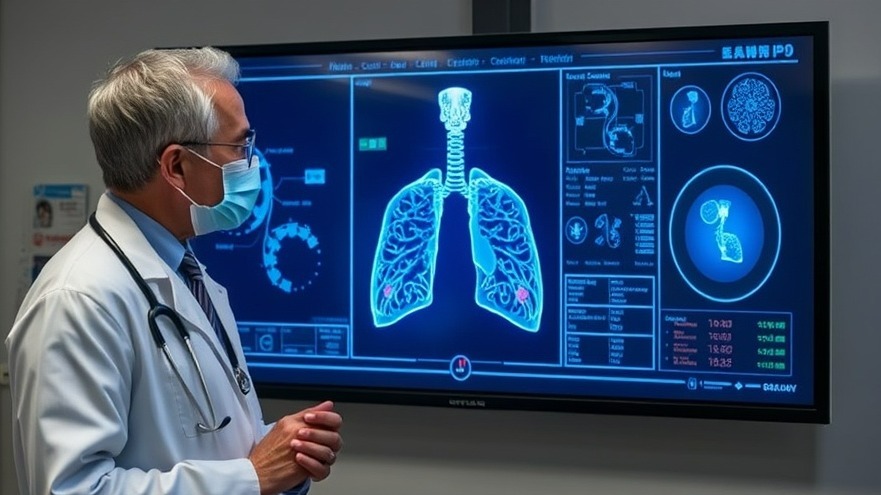
Understanding the Urgency of Patient-Centric Care
In a world where healthcare decisions can mean life or death, the heartbreaking case of Deron Wells highlights the urgent need for concierge medical practices to advocate for their patients effectively. At 59, Deron has stage 4 lung cancer and was recently denied coverage for a potentially lifesaving double lung transplant, which had been medically approved and set to take place in Chicago, far from his home in California. This situation is not just about Denial of Service; it involves a human being fighting for a second chance at life.
Defending Patient Rights Against Commercial Interests
Insurers like Cigna argue their decisions are guided by clinical standards, yet such a rigid interpretation of guidelines often leads to human stories being sidelined. Patient advocates and concierge practices must embrace the responsibility of challenging these denials when they are clearly unfounded. Deron's wife poignantly noted, "We're not just a number. We are talking about his life," indicating a profound misunderstanding of the complexities of individual health needs. Hearing the personal stories behind statistics could be the primary catalyst for legislative change governing insurance practices.
The Role of Advocacy in Concierge Medicine
One of the core missions of concierge medicine is to offer personalized care, making it vital to foster strong patient-physician relationships. This can be enhanced through active advocacy for necessary treatments that go beyond common practice guidelines. In the case of Deron, although lung transplants are not usually recommended for cancer, options should remain open, especially when a medically approved trial is on the table. Advocacy can create pathways and open doors that traditional measures can't, dusting off years of restrictive practices.
Collaborating with Patients: Building Trust for Better Outcomes
For medical practices embarking on concierge operations, it’s crucial to recognize how building trust with patients can significantly impact adherence to treatment plans. Patients who feel their providers truly prioritize their well-being are more likely to communicate openly about their needs and challenges. Deron's experience underlines how pivotal this relationship can be when navigating the complex insurance landscape, which often focuses more on profit than patient health.
Community Campaigns and Their Rippling Effect
Deron’s family has rallied support through a GoFundMe campaign, raising over $37,000, illustrating the role community engagement plays in healthcare struggles. The power of social media and public appeals can push insurance companies to reconsider decisions that may have initially seemed final. It sparks inspiration among other families facing similar battles and emphasizes the importance of collective action in the realm of health care.
Understanding the Financial Implications of Denied Treatments
As the healthcare landscape continues to grow intricate and layered, financial challenges are becoming more prevalent. The denial of coverage translates not only to denied treatment but significant out-of-pocket expenses for families. Concierge medical practices must therefore emphasize transparency and preparedness about potential costs associated with care options. Preparing patients for financial realities while fighting for their coverage is essential for ensuring comprehensive, compassionate care.
Ultimately, the system needs to reflect that each patient, like Deron Wells, is unique and deserves individualized attention and solutions. Concierge medical practices have a powerful opportunity to lead this transformation, advocating fiercely for patients who may otherwise be silenced by the system.
As practitioners aim to position their practices as leaders in patient-centered care, the insights from Deron's experience highlight that combining excellent medical care with vigorous advocacy can truly save lives. Fostering a supportive and transparent environment is vital for increasing patient trust and commitment, vital factors in any successful healthcare model.
Join your peers and take action: empower your practice to prioritize the needs and rights of your patients by incorporating patient advocacy into your services. Together, we can ensure that stories like Deron's turn into positive outcomes, not just statistics.
 Add Row
Add Row  Add
Add 






Write A Comment